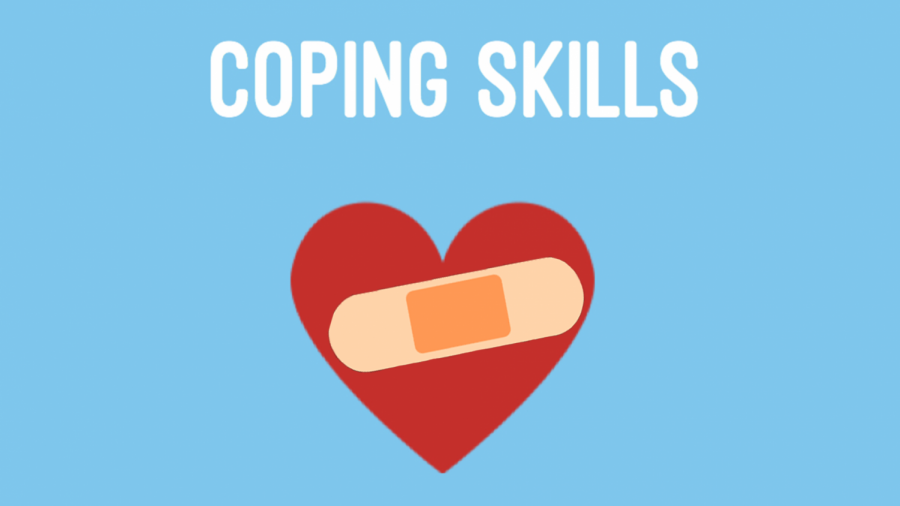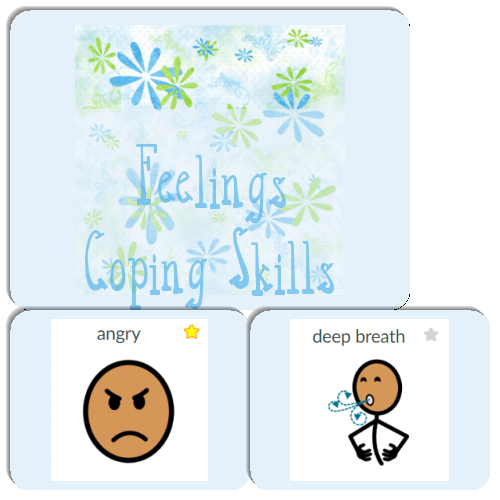Which Of These Is True About Coping Skills? Unlocking Your Emotional Resilience
So listen up, folks. Coping skills are not just some buzzwords floating around in self-help circles. They’re real, they’re powerful, and they can literally change your life. Whether you're dealing with stress at work, relationship drama, or just the everyday chaos of life, coping skills are your secret weapon. But here's the million-dollar question: which of these is true about coping skills? Let's dive in and find out what makes them so crucial for emotional well-being.
In this article, we’re going to break it down for you. Coping skills aren’t just about "getting through" tough times. They’re about thriving, growing, and transforming challenges into opportunities. Think of them as tools in your mental health toolkit—tools that you can sharpen and use whenever life throws you a curveball. And trust me, life has a way of throwing those curveballs when you least expect them.
But before we get into the nitty-gritty, let’s set the stage. Coping skills are more than just deep breaths and positive affirmations (though those are great too). They’re strategies, techniques, and habits that help you manage stress, anxiety, and other overwhelming emotions. So, buckle up, because we’re about to explore everything you need to know about coping skills—and which of these statements about them is actually true.
Read also:Blanchard St Denis Funeral Home Obits A Heartfelt Journey Through Life And Legacy
What Exactly Are Coping Skills?
Alright, let’s start with the basics. Coping skills refer to the methods and techniques we use to handle difficult situations, emotions, and stressors. They’re like your personal stress-busting superpowers. But here’s the thing: not all coping skills are created equal. Some are healthy, some are not-so-healthy, and some are downright destructive. The key is to identify which coping skills work best for you—and which ones you should probably steer clear of.
Here’s a fun fact: coping skills aren’t just for when things go wrong. They’re also for when you want to stay ahead of the game. For example, if you know you have a big presentation coming up, you can use coping skills to prepare mentally and emotionally. It’s like having a pre-game warm-up for your mind.
Types of Coping Skills: Not All Are Created Equal
Now, let’s talk about the different types of coping skills. There are two main categories: problem-focused coping and emotion-focused coping. Problem-focused coping is all about tackling the source of the stress head-on. Think of it as fixing the leaky faucet instead of just ignoring it. Emotion-focused coping, on the other hand, is about managing your emotional response to the stressor. It’s like learning to live with the sound of the dripping faucet until you can fix it.
Problem-Focused Coping Skills
Problem-focused coping skills are all about action. They’re the “do something about it” approach. For example, if you’re stressed about a looming deadline, a problem-focused coping skill might be breaking the task into smaller, manageable steps. Or, if you’re dealing with a conflict at work, it might involve having a direct conversation with the person involved. These skills are all about taking control of the situation and finding solutions.
Emotion-Focused Coping Skills
On the flip side, emotion-focused coping skills are about managing your feelings. They’re the “calm down and deal with it later” approach. Techniques like deep breathing, meditation, and journaling fall into this category. These skills help you process your emotions and reduce the intensity of stress or anxiety in the moment. Think of them as your emotional first aid kit.
Which of These is True About Coping Skills?
Now, let’s address the elephant in the room. There are a lot of myths and misconceptions out there about coping skills. So, which of these is true about coping skills? Let’s break it down:
Read also:Megan Thee Stallion Height In Feet The Real Story Behind The Queen Of Htown
- Coping skills can be learned and developed over time.
- Not all coping skills are healthy or effective.
- Coping skills are not a one-size-fits-all solution.
- Coping skills are essential for emotional resilience.
See? Coping skills are more than just a quick fix. They’re a long-term investment in your mental and emotional well-being. And the good news is, you don’t have to be a psychologist to start building your coping skills. You just need a little guidance—and that’s where we come in.
Why Are Coping Skills Important?
Let’s face it: life is unpredictable. One day you’re crushing it, and the next day you’re wondering how you’re going to get through the week. That’s where coping skills come in. They help you navigate the ups and downs of life with grace and resilience. Without them, even the smallest stressors can feel overwhelming.
But here’s the kicker: coping skills aren’t just for tough times. They’re for everyday life. Think about it: how often do you feel stressed, anxious, or overwhelmed? Probably more often than you’d like to admit. Coping skills give you the tools to handle those moments with confidence and clarity.
The Science Behind Coping Skills
And it’s not just anecdotal evidence. There’s actual science behind why coping skills work. Studies have shown that people who use effective coping strategies tend to have better mental health outcomes, lower levels of stress, and even stronger relationships. It’s like a win-win-win situation.
How to Develop Coping Skills
Alright, so you’re convinced that coping skills are important. But how do you actually develop them? It’s not as hard as you might think. Here are a few tips to get you started:
- Identify your stressors: What triggers your stress or anxiety? Knowing your triggers is the first step in developing effective coping skills.
- Experiment with different techniques: Not every coping skill will work for you. Try out different strategies and see what feels right.
- Practice regularly: Coping skills are like muscles—they get stronger with practice. Make it a habit to use your coping skills, even when you’re not feeling stressed.
And don’t forget: it’s okay to ask for help. If you’re struggling to develop coping skills on your own, consider working with a therapist or counselor. They can help you identify your strengths and weaknesses and develop a personalized plan for building resilience.
Common Myths About Coping Skills
Before we move on, let’s debunk a few common myths about coping skills:
- Myth: Coping skills are only for people with mental health issues.
Truth: Coping skills are for everyone. Even if you don’t have a diagnosed mental health condition, you can still benefit from developing strong coping skills. - Myth: Coping skills are a quick fix.
Truth: Coping skills are a long-term investment. They won’t solve all your problems overnight, but they will help you manage stress and anxiety more effectively over time. - Myth: Coping skills are only for negative emotions.
Truth: Coping skills can help you manage positive emotions too. For example, if you’re feeling overwhelmed by excitement or joy, coping skills can help you stay grounded.
See? Coping skills are way more versatile than you might think.
Real-Life Examples of Coping Skills
Let’s bring it back to reality. Here are a few real-life examples of coping skills in action:
- Deep Breathing: When you’re feeling anxious, take a few deep breaths. Inhale for four counts, hold for four counts, and exhale for four counts. It’s simple, but it works.
- Journaling: If you’re struggling to process your emotions, try writing them down. Journaling can help you gain clarity and perspective.
- Exercise: Physical activity is one of the best coping skills out there. Whether it’s a brisk walk, a yoga session, or a full-on workout, exercise can help reduce stress and boost your mood.
And the best part? These coping skills are free, accessible, and easy to implement. So why not give them a try?
How to Choose the Right Coping Skills for You
Not all coping skills are created equal, and what works for one person might not work for another. That’s why it’s important to find the coping skills that resonate with you. Here are a few things to consider:
- What are your strengths? If you’re naturally a problem-solver, problem-focused coping skills might be a good fit for you.
- What are your preferences? If you love creative activities, art therapy or music therapy might be worth exploring.
- What are your limitations? If you have physical or financial constraints, look for coping skills that work within those limitations.
Remember: there’s no one-size-fits-all solution. The key is to experiment, reflect, and refine your coping skills over time.
The Role of Coping Skills in Mental Health
Let’s talk about the big picture. Coping skills are a critical component of mental health. They help you manage stress, anxiety, and other overwhelming emotions. But they also play a role in preventing more serious mental health issues down the line. By building strong coping skills now, you’re setting yourself up for long-term emotional resilience.
And here’s the best part: coping skills aren’t just for individuals. They’re also for families, communities, and workplaces. Imagine a world where everyone had access to effective coping skills. Wouldn’t that be something?
Impact on Relationships
Coping skills aren’t just about you—they also affect the people around you. When you’re better able to manage your emotions, you’re more likely to have healthy, positive relationships. And let’s be real: who doesn’t want that?
Conclusion: Which of These is True About Coping Skills?
So, which of these is true about coping skills? The answer is: all of them. Coping skills are essential, versatile, and powerful tools for managing stress, anxiety, and other overwhelming emotions. They’re not a quick fix, but they’re a long-term investment in your mental and emotional well-being.
Now it’s your turn. Are you ready to take control of your emotional health? Start by identifying your stressors, experimenting with different coping skills, and practicing regularly. And don’t forget to share this article with your friends and family. Coping skills are too good to keep to yourself.
Until next time, stay strong, stay resilient, and keep building those coping skills. You’ve got this.
Table of Contents
- What Exactly Are Coping Skills?
- Types of Coping Skills: Not All Are Created Equal
- Which of These is True About Coping Skills?
- Why Are Coping Skills Important?
- How to Develop Coping Skills
- Common Myths About Coping Skills
- Real-Life Examples of Coping Skills
- How to Choose the Right Coping Skills for You
- The Role of Coping Skills in Mental Health
- Conclusion: Which of These is True About Coping Skills?


